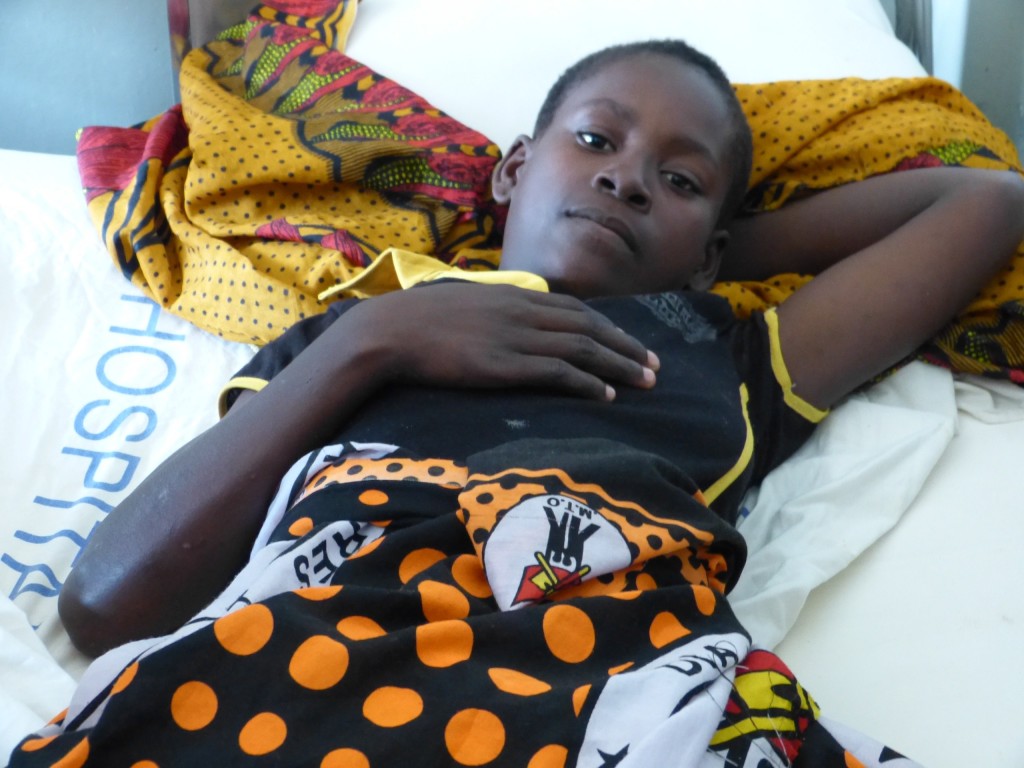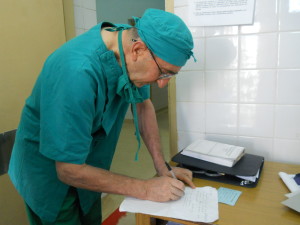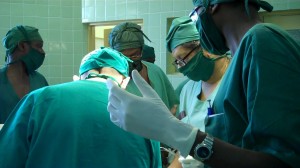According to World Bank data, amongst the 115 low-income countries of the world, the proportion of people in extreme poverty (that is, with an income of US$1.25 [...]]]>
According to World Bank data, amongst the 115 low-income countries of the world, the proportion of people in extreme poverty (that is, with an income of US$1.25 per day per person, adjusted for purchasing power parity) declined from 43.4 percent in 1990 to 17 percent in 2011.
In other words, 912 million people were lifted out of extreme poverty over the past two decades.
This drop was mainly concentrated in East Asia and the Pacific, where the incidence of extreme poverty was reduced from 57 to 7.9 percent during the same period (i.e. 750 million people). In Southeast Asia, it dropped from 54.1 to 24.5 percent (221.5 million people).
In Latin America and the Caribbean, between 1990 and 2011, the incidence of extreme poverty dropped from 12.2 to 4.6 percent, meaning that 25.5 million Latin Americans no longer live in this extreme condition.
Two decades ago, poverty was defined in monetary terms, based on a consensus around the concept that income was an adequate measure to represent wellbeing.
Today, it is more commonly understood that well-being is something that must be seen within a wider perspective. Poverty must be understood by identifying deprivations in factors that go beyond personal income.
In the international arena, perhaps the most significant progress made in this regard has been the increased use of the notion of multidimensional poverty. With more or less detail, it is often measured based on nutrition and infant mortality, years of schooling and school attendance, type of housing and access to the basic supplies that this entails, as well as the ownership of basic assets.
In September of next year, the member states at the United Nations will decide on the new global agenda for development. At the moment, the proposal that is most likely to be accepted on poverty includes the goal that, by 2030, extreme poverty as set by poverty-line income threshold of US$1.25 per day will have been completely eliminated, and the proportion of people living in poverty – in all its dimensions according to the different definitions used in each country – will be halved.
From an optimistic perspective, this proposal implies that many countries have already started to take an important step towards a new way of thinking and furthering the wellbeing of individuals, and that many other countries will also do so in the near future.
Tell us – beyond income, what other material dimensions of well-being should also be considered?
*Alfredo González Reyes is an UNDP specialist on poverty and human development in Latin America and the Caribbean @UNDPLAC @pulpogonzalez www.latinamerica.undp.org
]]>As the only surgeon for more than half a million people in Tete province, he might do 10 operations a day, besides regular medical consultations. While in Mocuba, in [...]]]>

A 15-year-old girl, who was married at age 14, endured two days of obstructed labour, had a stillborn baby, and developed obstetric fistula, recovers from fistula surgery at Nampula Central Hospital, Mozambique. Every year, some 400 women develop obstetric fistula in Mozambique – most are teen mothers and child brides. Credit: Mercedes Sayagues
As the only surgeon for more than half a million people in Tete province, he might do 10 operations a day, besides regular medical consultations. While in Mocuba, in Zambezia province, he performed 1,500 surgeries in one year. The days were long, the conditions harsh, the lack of medical supplies serious. In the mid-1980s, he was happy to welcome the North Vietnamese doctors sent as aid workers. Although they did not share any common language, they were company and shared the long work days.
Marchesini, an Italian priest and doctor, arrived in Mozambique in 1976, just after independence, and just as civil war broke out.
Among all the horrors of war – landmines, bullets, amputations, mutilations, and malnutrition – one plight particularly moved him: the women with obstetric fistula, estimated to be 100,000 in the country.
Obstetric fistula is a lesion that causes a hole in the tissue of the vagina, the urethra or the rectum, leading to urinary or faecal incontinence. It is caused by long and complicated births without proper medical care, when for days the baby’s head pushes on the surrounding tissue, tearing them, according to the United Nations Population Fund.

Father Aldo Marchesini processing paperwork in-between operating obstetric fistulas at Beira Central Hospital, in Mozambique. Credit: Mercedes Sayagues/IPS
Marchesini had learned to operate fistula with a missionary in Uganda. In Mozambique, he mastered the delicate surgery and he trained all the local doctors who operate fistula today. Marchesini taught them not only the skills, but the passion and compassion that infuse his work. This earned him the 2014 United Nations Population award, shared with Johns Hopkins University, which will be presented in New York on 12 June.
Every year since 1985, Marchesini and his team of doctors stage “fistula campaigns” in the central and northern provinces. Women from remote districts come to referral hospitals to be free of the incontinence, shame and social exclusion that fistula brings.
Not only did Marchesini operate, he also raised funds in Italy for hospital and transport costs and to help these women start a new life selling used clothes in their homes.
Early on, Marchesini realized that media, especially community radios, were key in the campaign against fistula. Journalists can explain how to avoid it (give birth in hospital, discourage early marriage and pregnancy) and can inform women about treatment and cure. Talking to media was part of Marchesini’s job.
Sometime in the late 1990s, Marchesini contracted HIV, probably, as he told me, “from delivering babies and operating without surgical gloves, which were scarce during the war.” He discovered his status in 2002, during a medical check-up in his home country, Italy, for a stubborn bronchitis.

Marchesini (left front), operating with his team in Beira, has taught every surgeon who repairs obstetric fistulas in Mozambique. Credit: Mercedes Sayagues/IPS
“I felt that my life, until then in the same railway carriage as everybody else, had suddenly gone on another train and another railway to a new destination,” he told me. He immediately started on antiretrovirals.
When he returned to Mozambique, although at the time AIDS was surrounded by shame and stigma, Marchesini did not hesitate in going public with his status, to show that HIV knows no social boundaries and that one can live positively with the virus.
He was the first and practically remains the only professional person who is publicly open about living with the virus in Mozambique, where stigma doggedly clings to HIV.
Marchesini’s adventures and reflections as the lone surgeon during the war are recorded in his memoirs, scattered chapters in a lively prose, written in Italian and Portuguese when he goes on holiday once a year. It is a moving history of rural health during a civil war, with a deep tenderness for the plight of children and women.
Today, well over 70 years old, having undergone a cardiac bypass operation last year, Marchesini still works long hours at the hospital in Quelimane, in the northern Zambezia province.
Two years ago, the town threw a party to celebrate his 30 years at the hospital. Hundreds came to thank him. Through northern Mozambique, people call him “o padre milagreiro”, the miracle-making father.
A man of characteristic modesty, Marchesini is uncomfortable whenever he hears this. “I just do my work”, he says.
]]>